Sometimes it's amazing the roundabout way we discover treasures that were heretofore unbeknownst to us. In fact, it was quite by accident that I learned that Pennsylvania is home to an impressive collection of antiquities once owned by Christopher Columbus -- yes, that Christopher Columbus -- the one who sailed the ocean blue in Fourteen Hundred Ninety-Two.
I learned about the collection after returning from Key West, where I visited the Hemingway House. When I sat down to share the details on this blog, I realized that I needed a few more specifics about the abode that once belonged to the famous author, so I picked up the phone to reach out to the contacts listed on the web page. The kind lady who answered my questions soon discovered that I lived in Pennsylvania. She then shared that she hailed from the Boalsburg area and marveled at the fact that as a travel writer, I was unaware of the astounding collection of Christopher Columbus artifacts that are tucked away in her small corner of the woods.
Since then, I always tell people that we made our way to the treasures in Boalsburg by way of Key West.
The Boal Mansion Museum (see top photo)
Boalsburg is home to fewer than 4,000 inhabitants, but it also has the distinction of being known as the birthplace of Memorial Day. The kind lady on the phone offered up that little factoid as well. It's amazing how few realize the historical importance of Boalsburg, let alone the fact that a king's ransom of priceless artifacts lies just beyond the treeline on business route 322.
Less than two hours after leaving our home near Harrisburg, we found ourselves navigating our way up a long gravel driveway to the 200-year old Boal Estate and poking around the "rustic" grounds which are home to the "Columbus" chapel and the Boal Mansion. Director Bob Cameron explained that manicured lawns don't necessarily "hew to history" and furthermore, a tornado had just touched down taking out several large trees. We felt lucky to have avoided that storm.
A docent greeted us and led us through the Mansion first, providing us with a great deal of information about the Boal family beginning with David Boal, a Scottish-Irish pioneer. Boal, in his quest for inexpensive land and freedom, founded the village and established a popular tavern nearby. The mansion began as a simple log home and evolved into what it is today.
David's son George became a farmer and advocated for those who worked the land after securing a seat in the Pennsylvania House of Representatives and founding the Centre County Agricultural Society. The Farmer's College, now known as Pennsylvania State University, is located in nearby State College. Penn State fans can thank George for that.
The Columbus connection can be attributed to the fourth generation of the Boal family. Colonel Theodore Davis Boal traveled to Europe in the 1890s to study architecture. It was there that he met a French-Spanish aristocrat by the name of Mathilde de Lagarde, who was related to Christopher Columbus by marriage.
Visitors who tour the mansion will view original furnishings belonging to the Boal family, along with portraits, tools, weapons, place settings and other artifacts.
The Boal family was "well-connected" and it shows. Among the collection are five different original presidential signatures, a lock of Napolean's hair, (de Largarde was a descendant of Josephine), and items signed by the astronauts from Apollo 11. I'd be remiss in failing to mention the items that are on display from King Tut's great grandparents' tomb, courtesy of George Jack Boal, who married a woman whose brother-in-law was the Egyptologist who made the discovery.
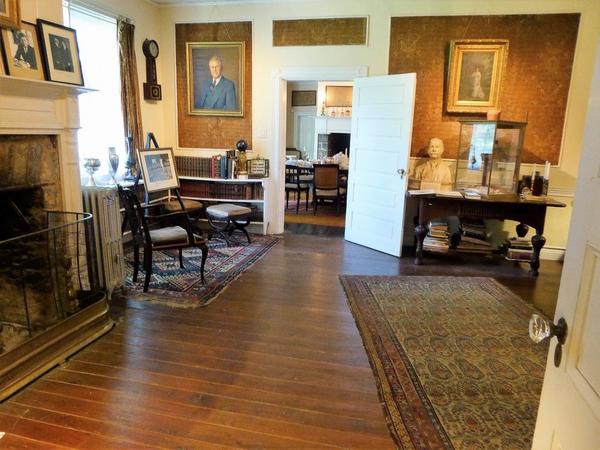 (The Living Room/Library of the Boal Mansion was added to the home in 1809.)
(The Living Room/Library of the Boal Mansion was added to the home in 1809.)
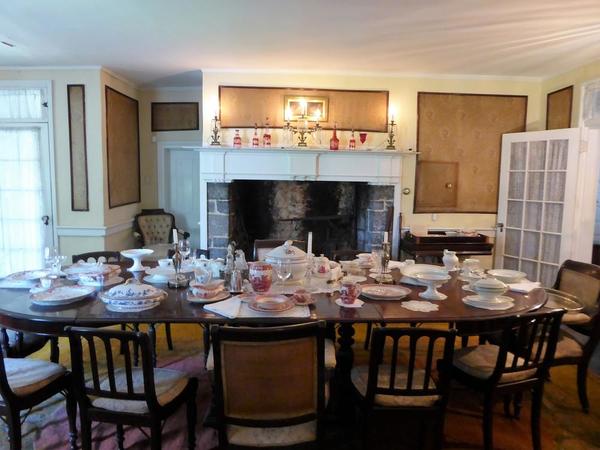 (The Boal Mansion Dining Room)
(The Boal Mansion Dining Room)
The elegant Boal Mansion ballroom was added in 1898 by Theodore Davis Boal and features a piano once owned by Dolly Madison.
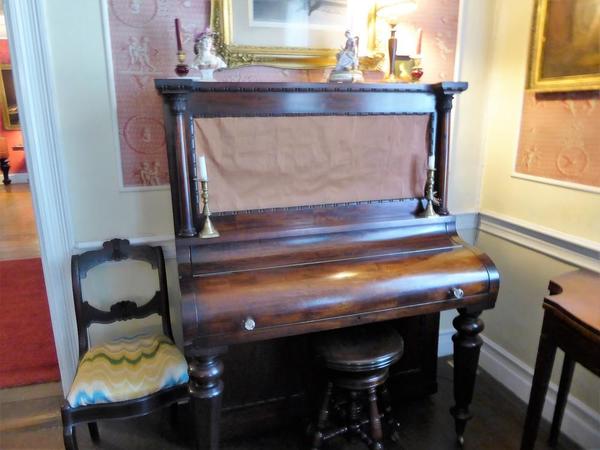 (Piano owned by Dolly Madison)
(Piano owned by Dolly Madison)
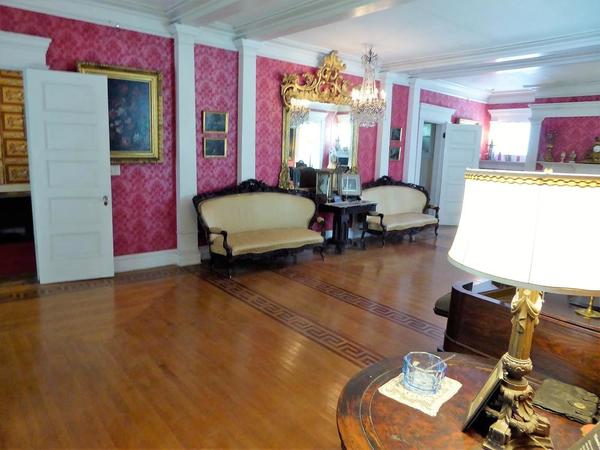
(Ballroom at the Boal Mansion)
Docents prefer to hold the information about the contents of the Columbus Chapel close to the vest until the end of the house tour when guests are then led to an ancient-looking stone structure with a unique backstory all its own.
The Columbus Chapel
Located just a short walk from the mansion, the Columbus Chapel is said to contain "the most significant collection of Christopher Columbus artifacts in North America." For this, you can thank Mathilde de Lagarde, the wife of Theodore Boal. De Lagarde inherited the collection from her Aunt Dona Victoria Columbus. Columbus died widowed and childless and willed the chapel to her niece. Colonel Boal's initial desire was to transport the structure to Boalsburg, but the Spanish government would have no parts of it, so he decided to build an exact replica on the Boalsburg mansion grounds and move all the contents to the property.
The anticipation of what lies beyond hangs heavily in the air as the docent fiddles with the lock on the metal security doors. Finally, it's time to reveal the original entrance to the chapel. The ornately carved, old heavy wood door doesn't disappoint and leads the way to the collection within.
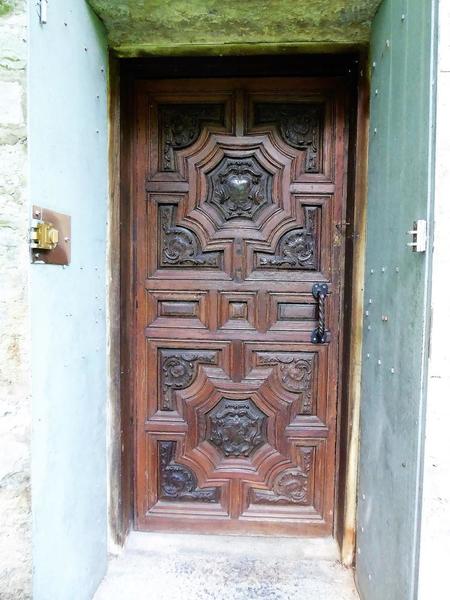 (The ornately carved door leads the way to the antiquities therein)
(The ornately carved door leads the way to the antiquities therein)
There's a sense of reverence inside the cozy structure that touts an array of ancient artifacts, like a well-used admiral's desk that Columbus pressed into service on his four journeys to the New World, 15th-century paintings and various statues ranging in date from the 14th-17th century. The Columbus Family Tree and Coat of Arms hang above on the choir loft and silk religious vestments with gold embroidery as old as 500 years are stored behind a clear partition in a chest of drawers.
 (The interior of the Columbus Chapel in Boalsburg, Pennsylvania)
(The interior of the Columbus Chapel in Boalsburg, Pennsylvania)
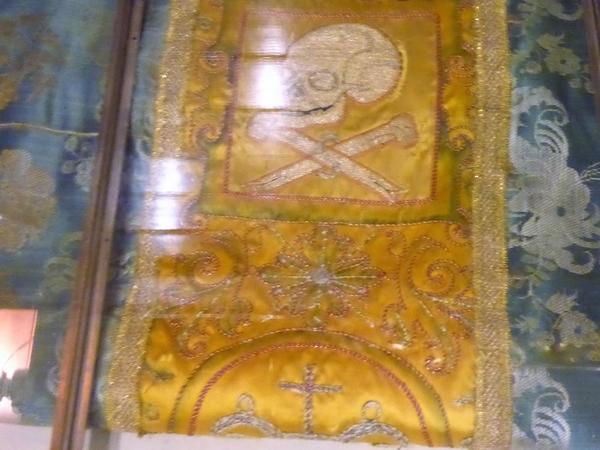
(Funeral vestments may strike fear into the hearts of some)
Stored inside a leather case is a silver reliquary, which is said to contain two pieces of the true cross of Jesus Christ brought back during the Crusades. On the wall hangs a manuscript attesting to its authenticity as certified by a Spanish Bishop.
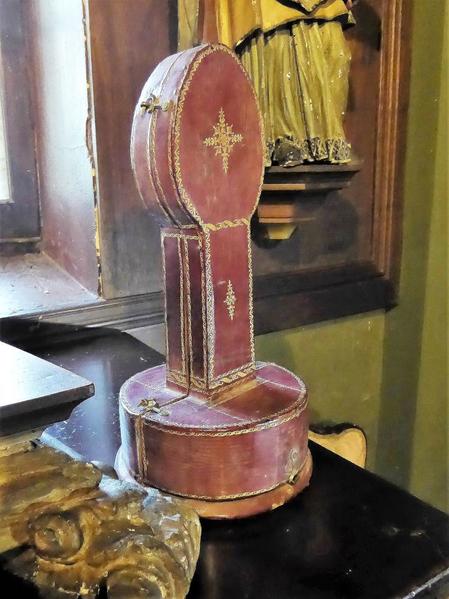
(The reliquary ensconced in its case)
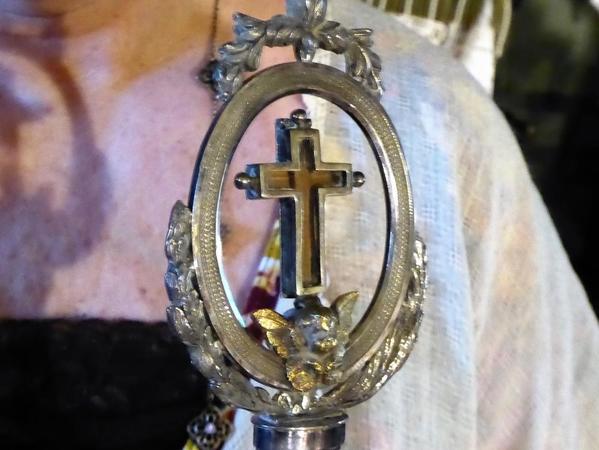
(Inside the silver reliquary are 2 pieces of wood said to be part of the left arm of the "True Cross")
Hidden behind confessional doors are 165,000 pages of family archives dating back to the year 1451. One wonders if they shouldn't be hermetically sealed in some manner, but we were assured that the correspondence has been cataloged for posterity courtesy of the Pennsylvania State University.
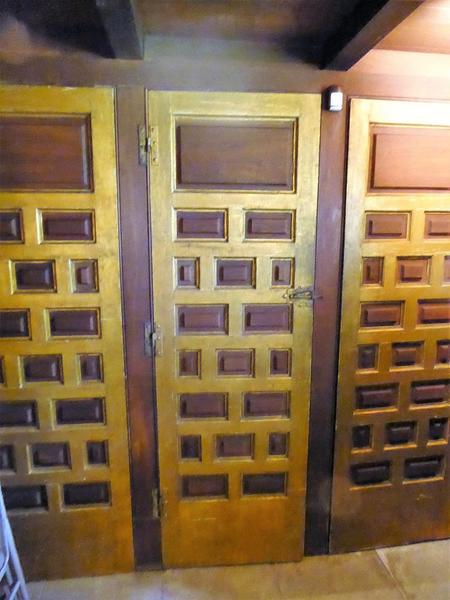
(Confessionals which store correspondence dating back to the 1400s.)
If you're interested in viewing this amazing collection, there's still time to do so before the season's end. Tours are conducted daily from 1:30 to 5:00 p.m. through October 30. You can learn more about the Columbus Chapel and Boal Mansion Museum website by clicking on this link.

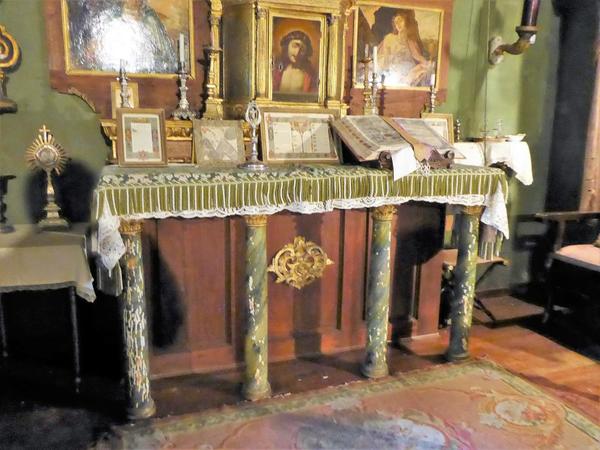
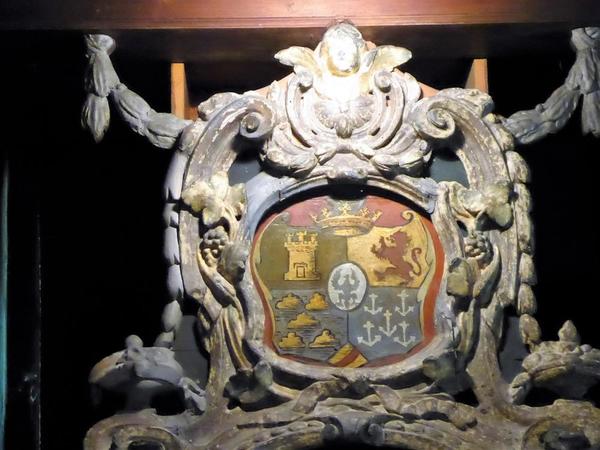
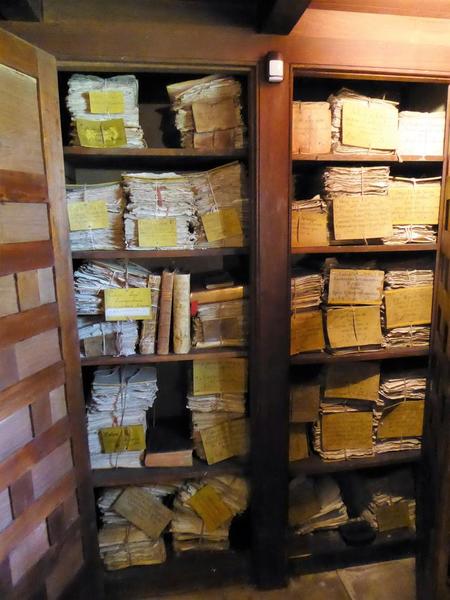
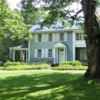
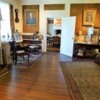
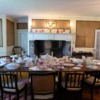
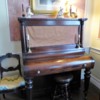
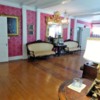
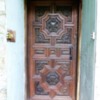
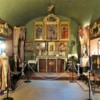
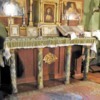
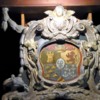
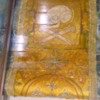
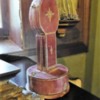
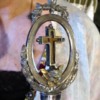
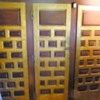
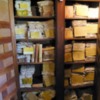
Comments (1)